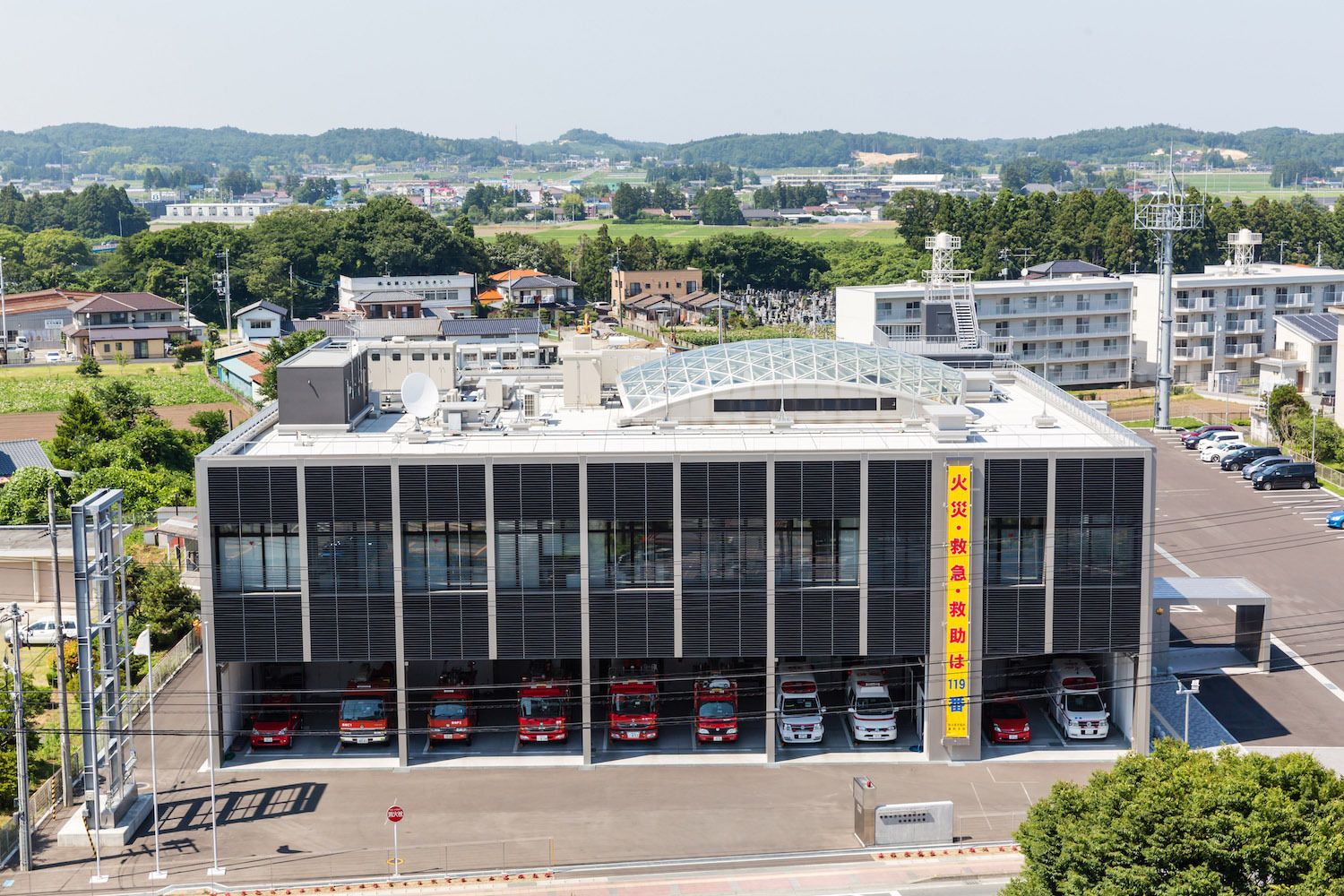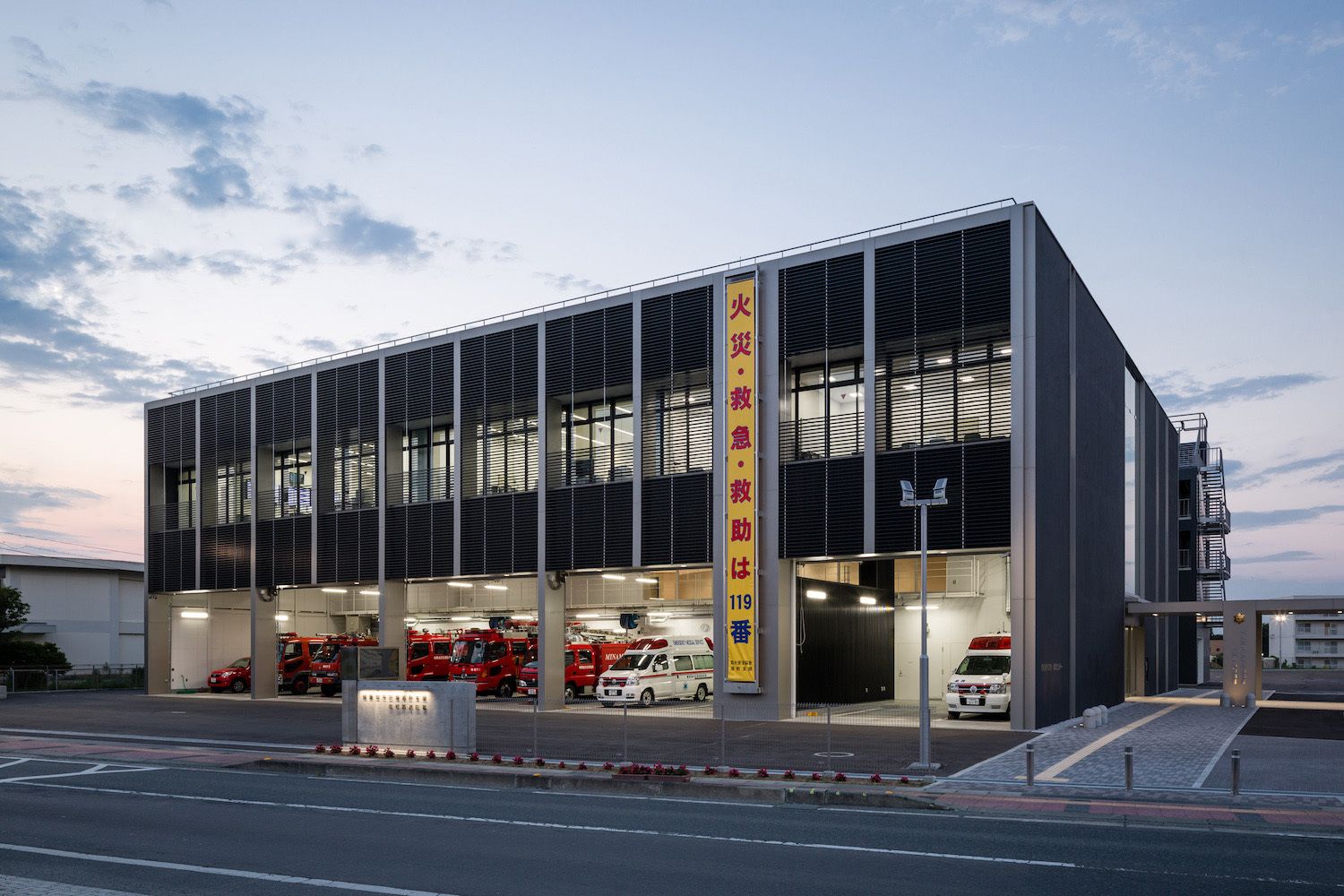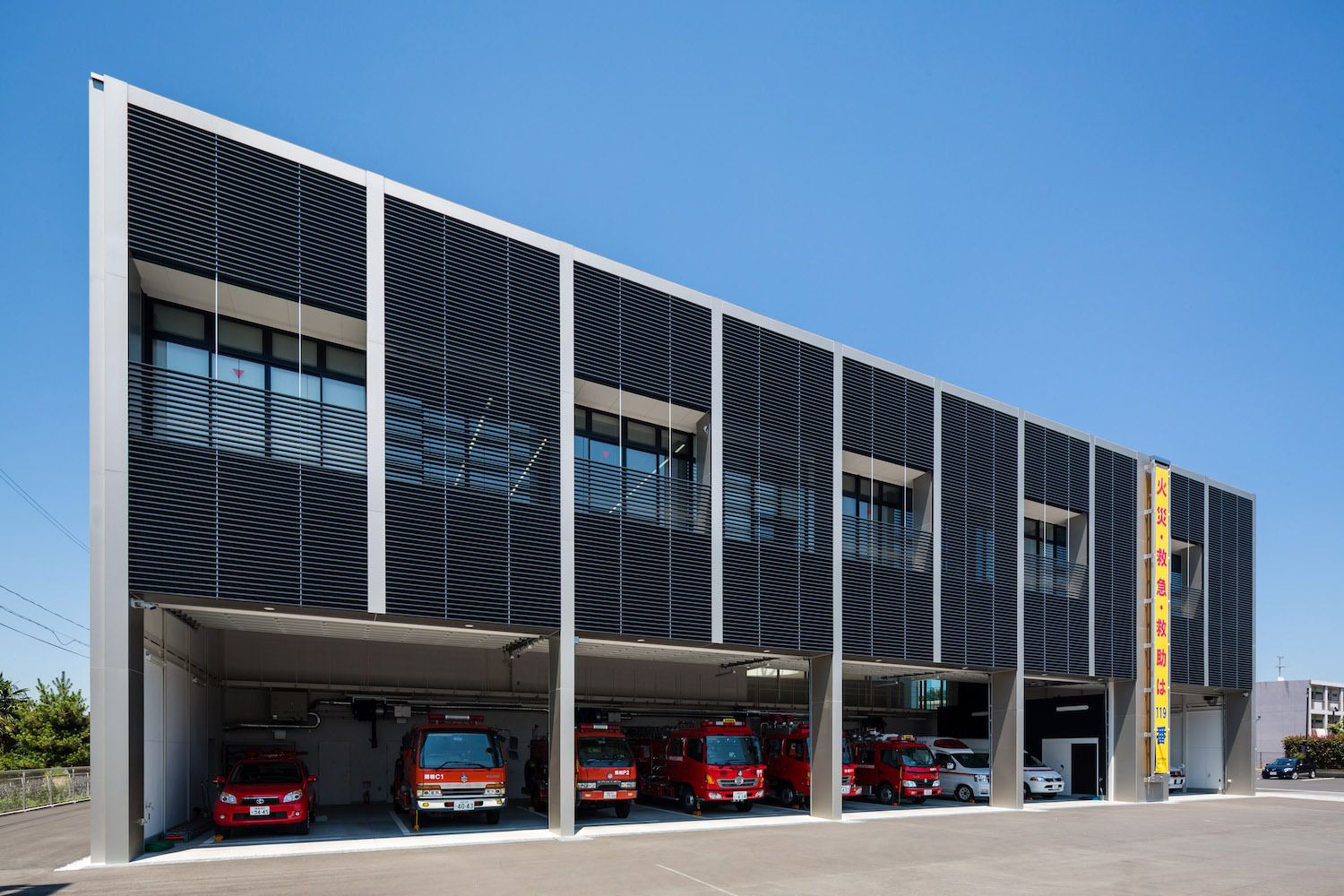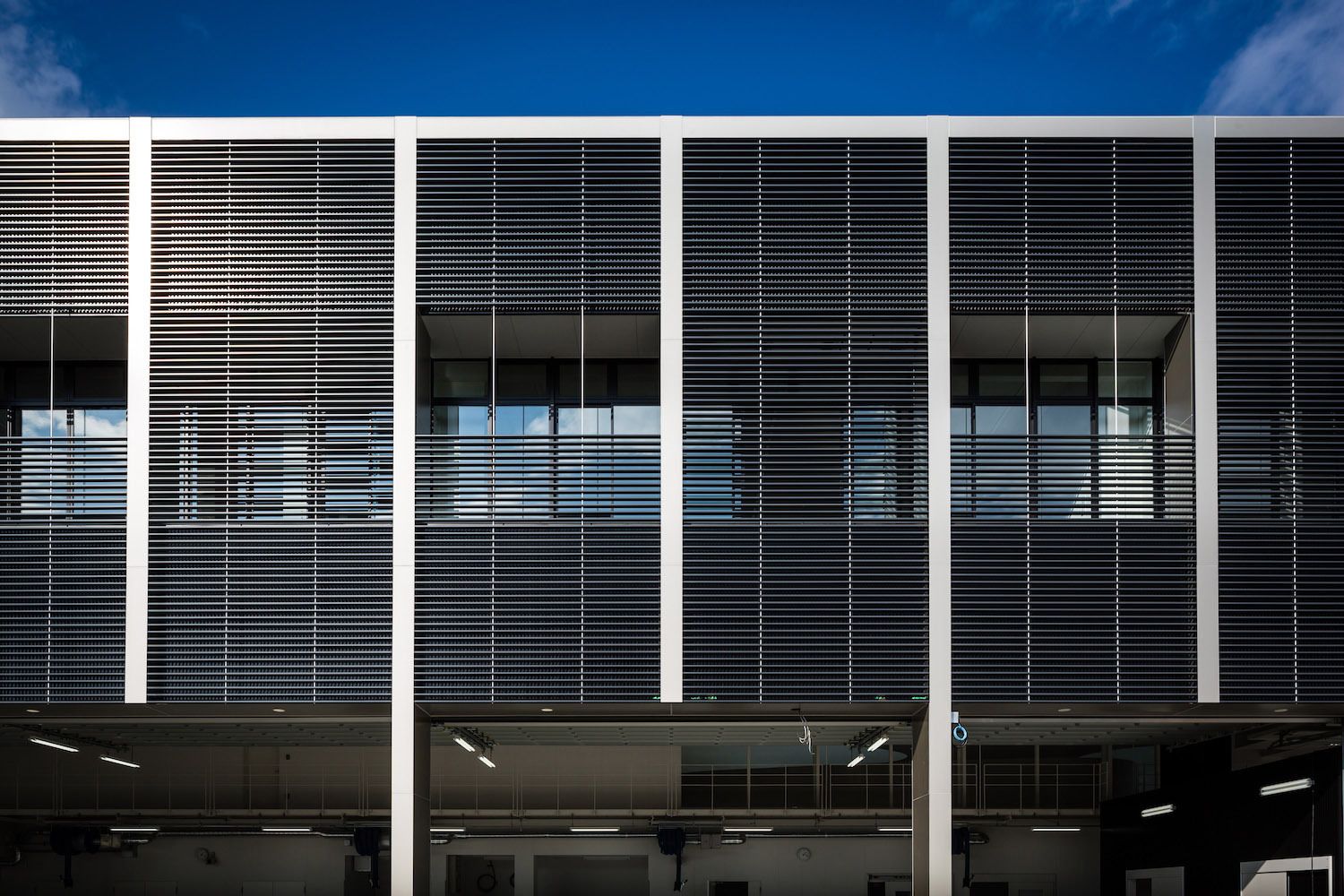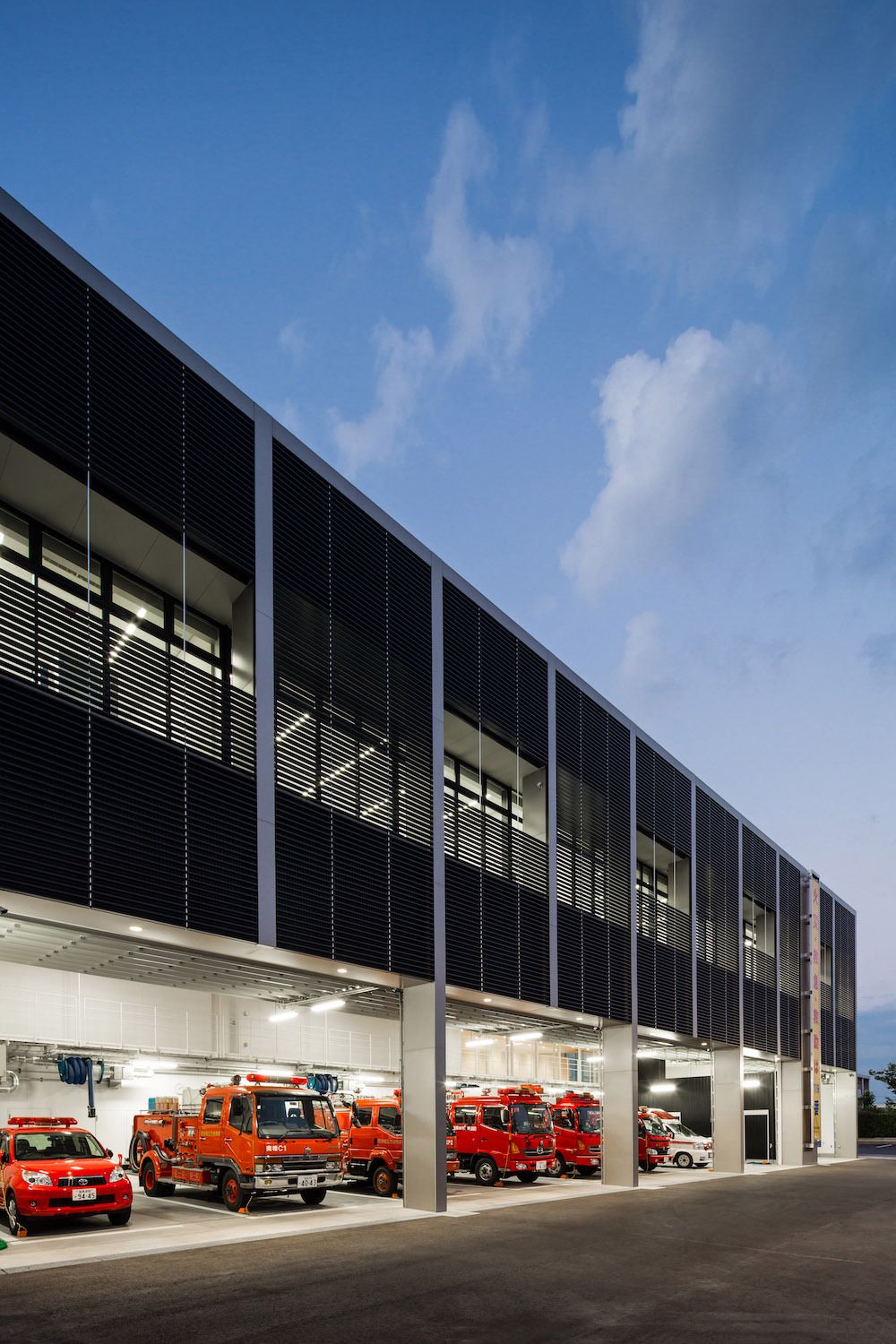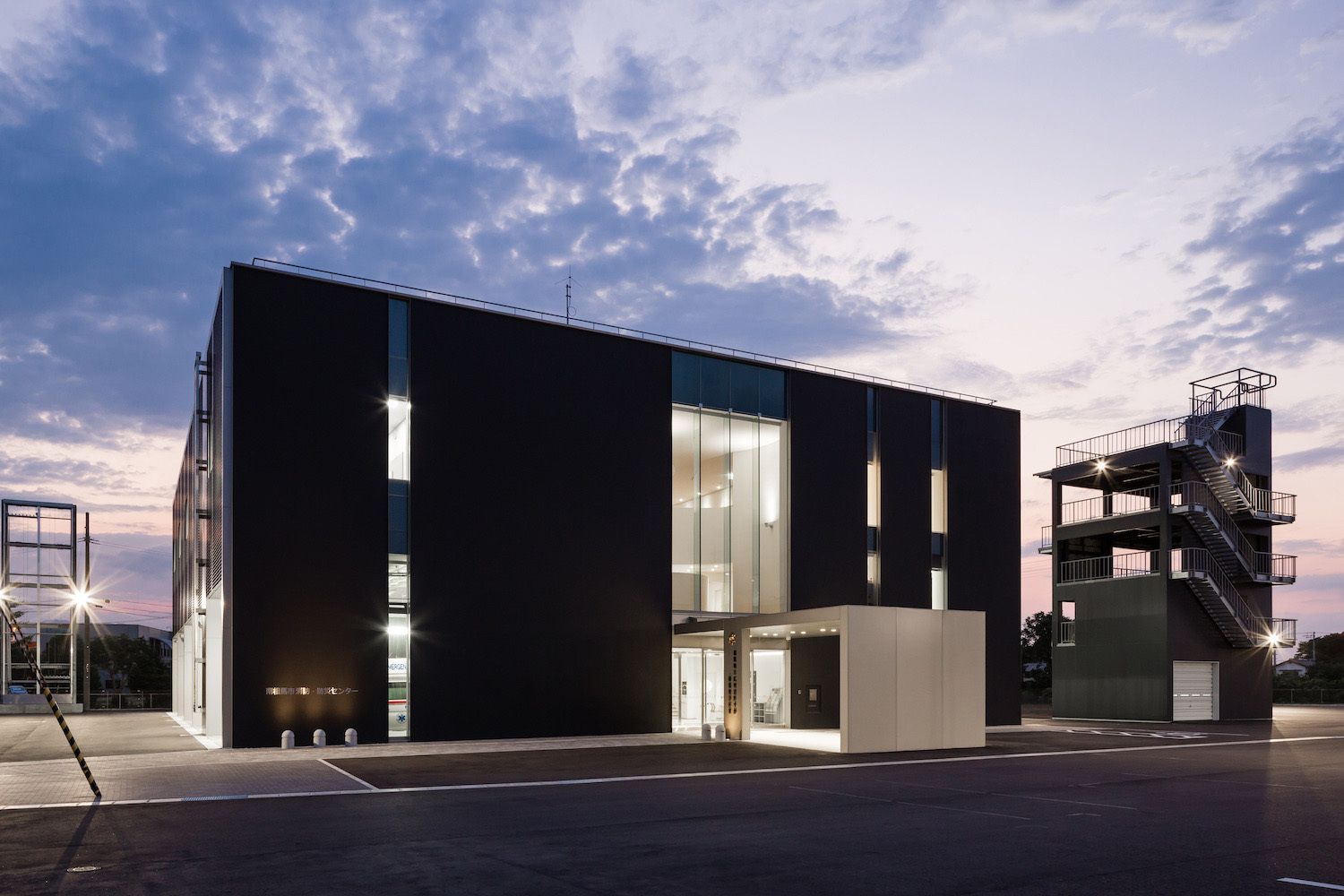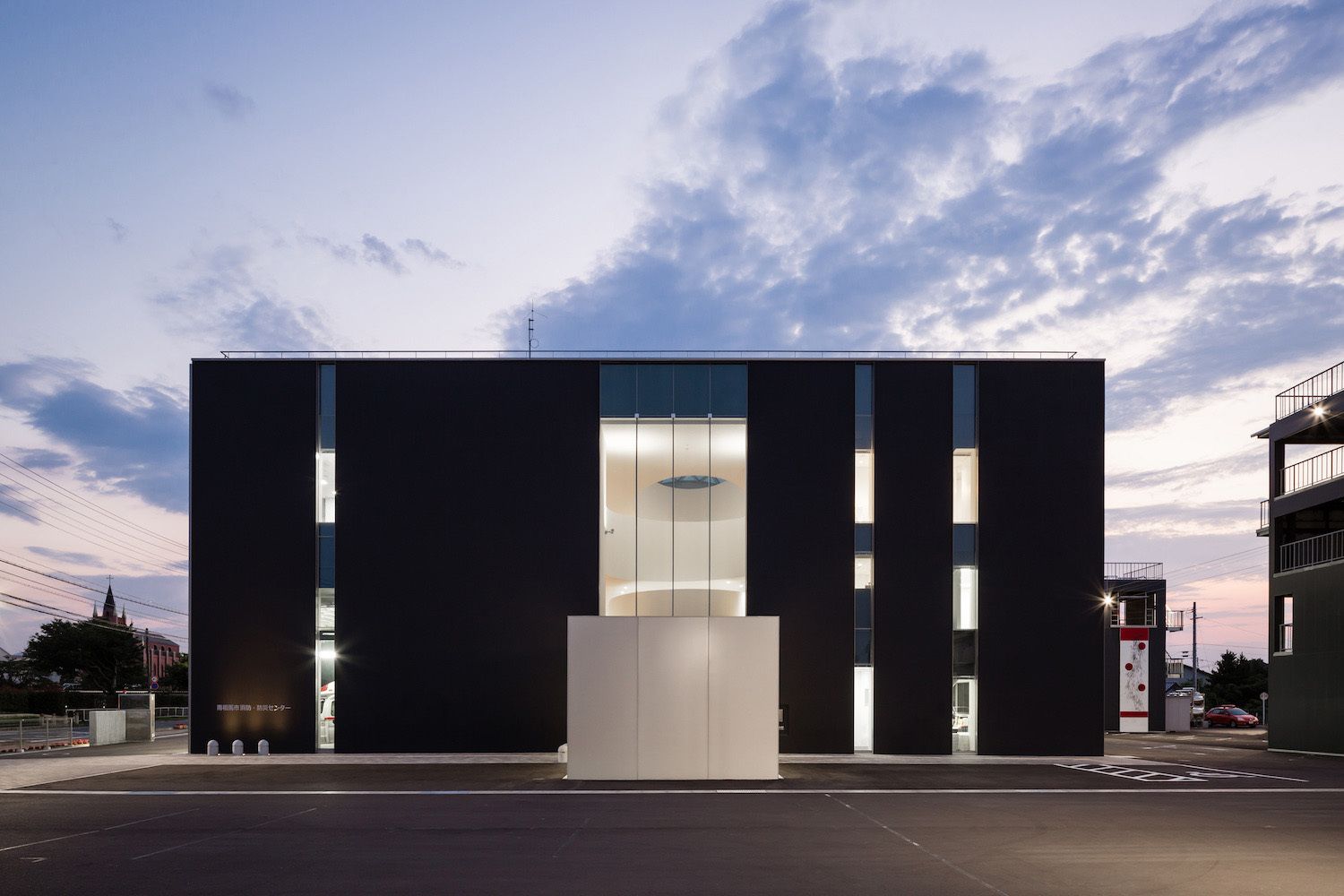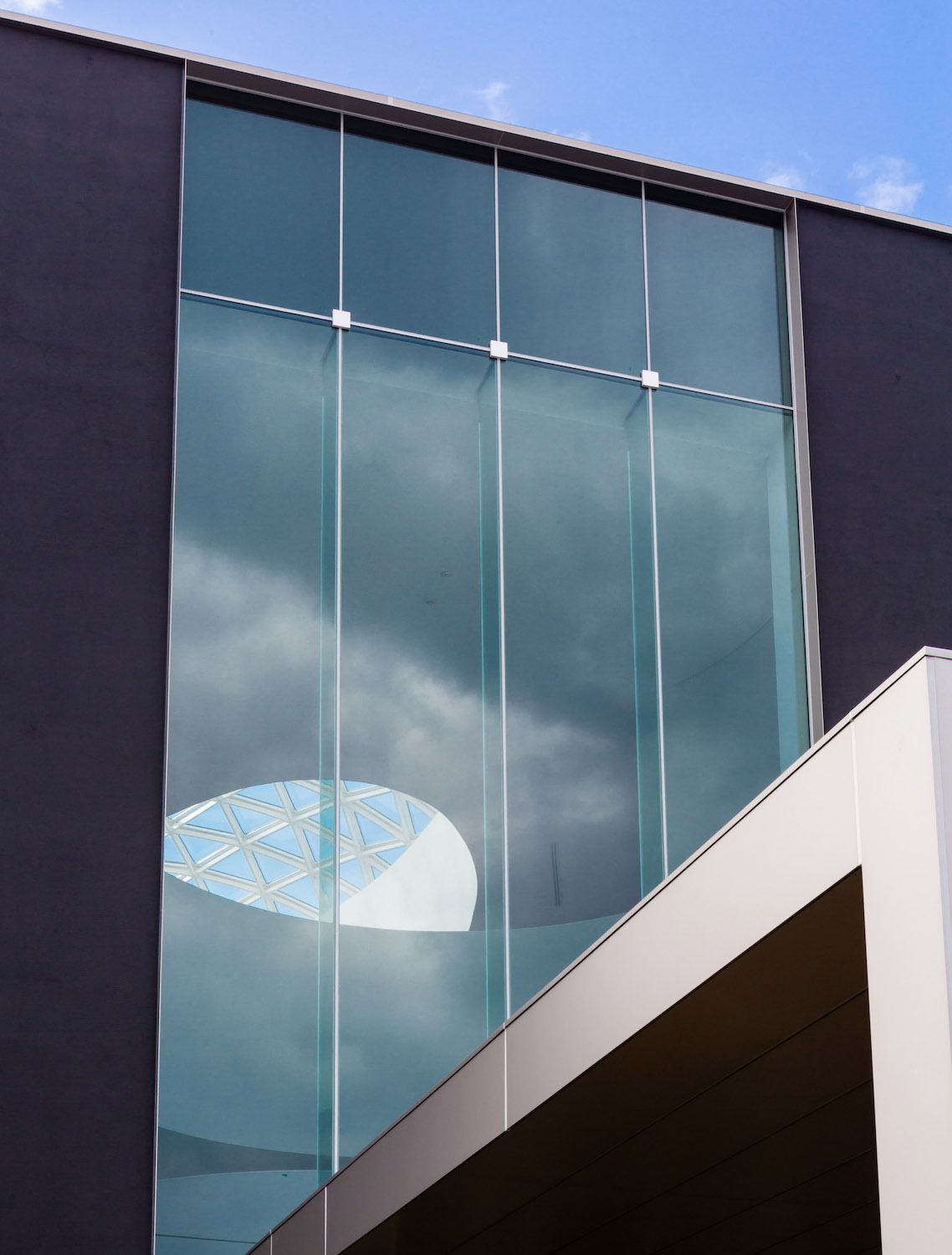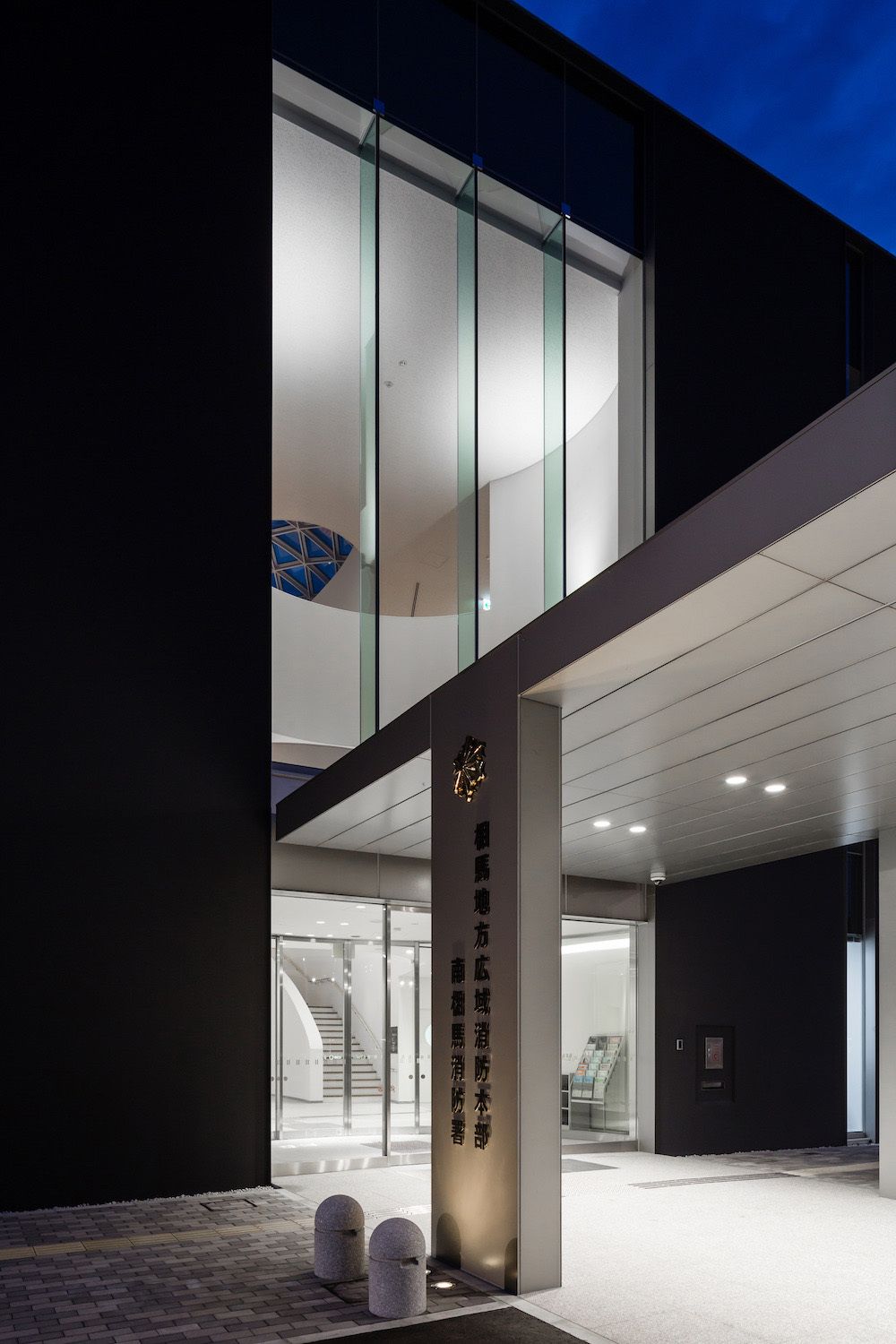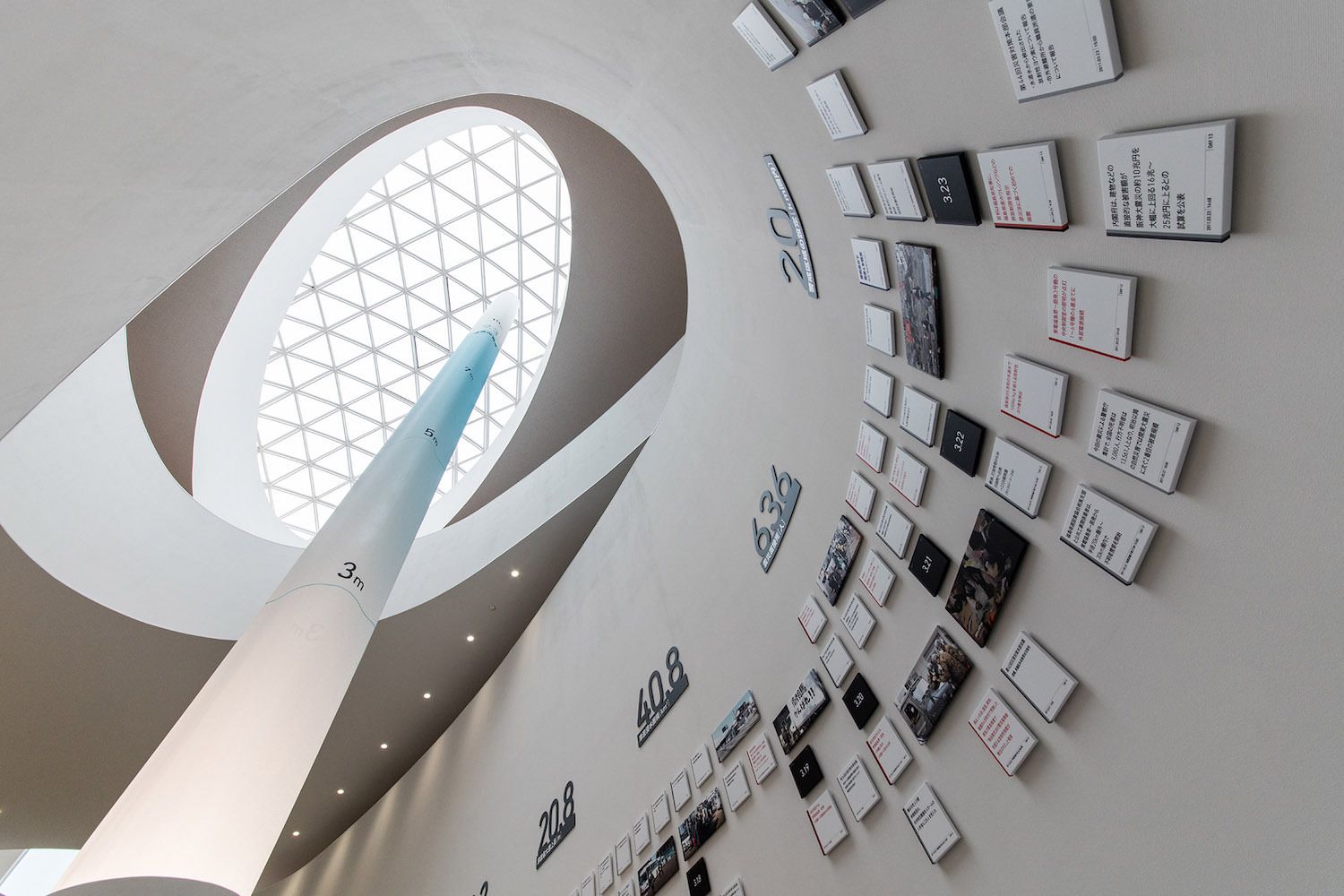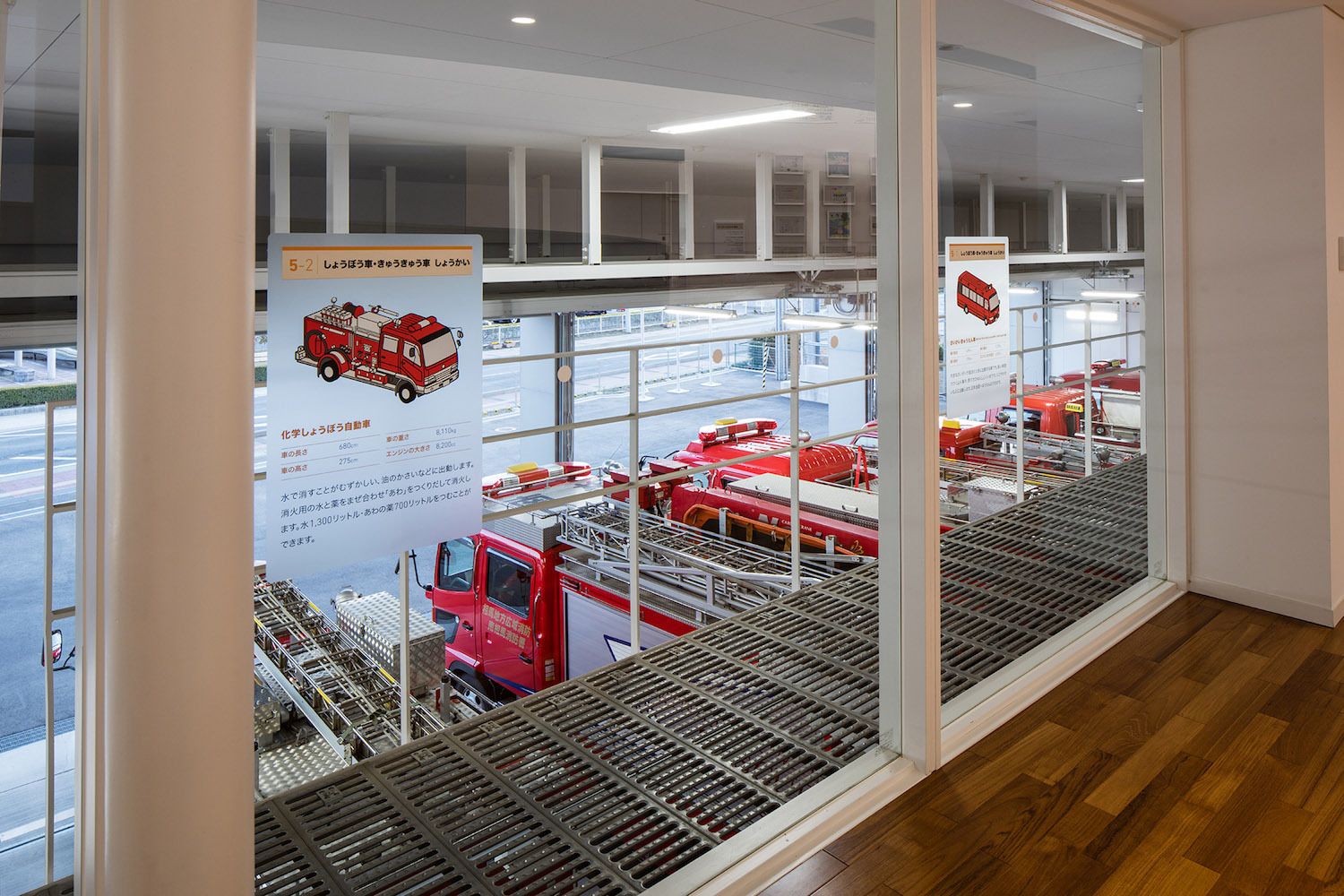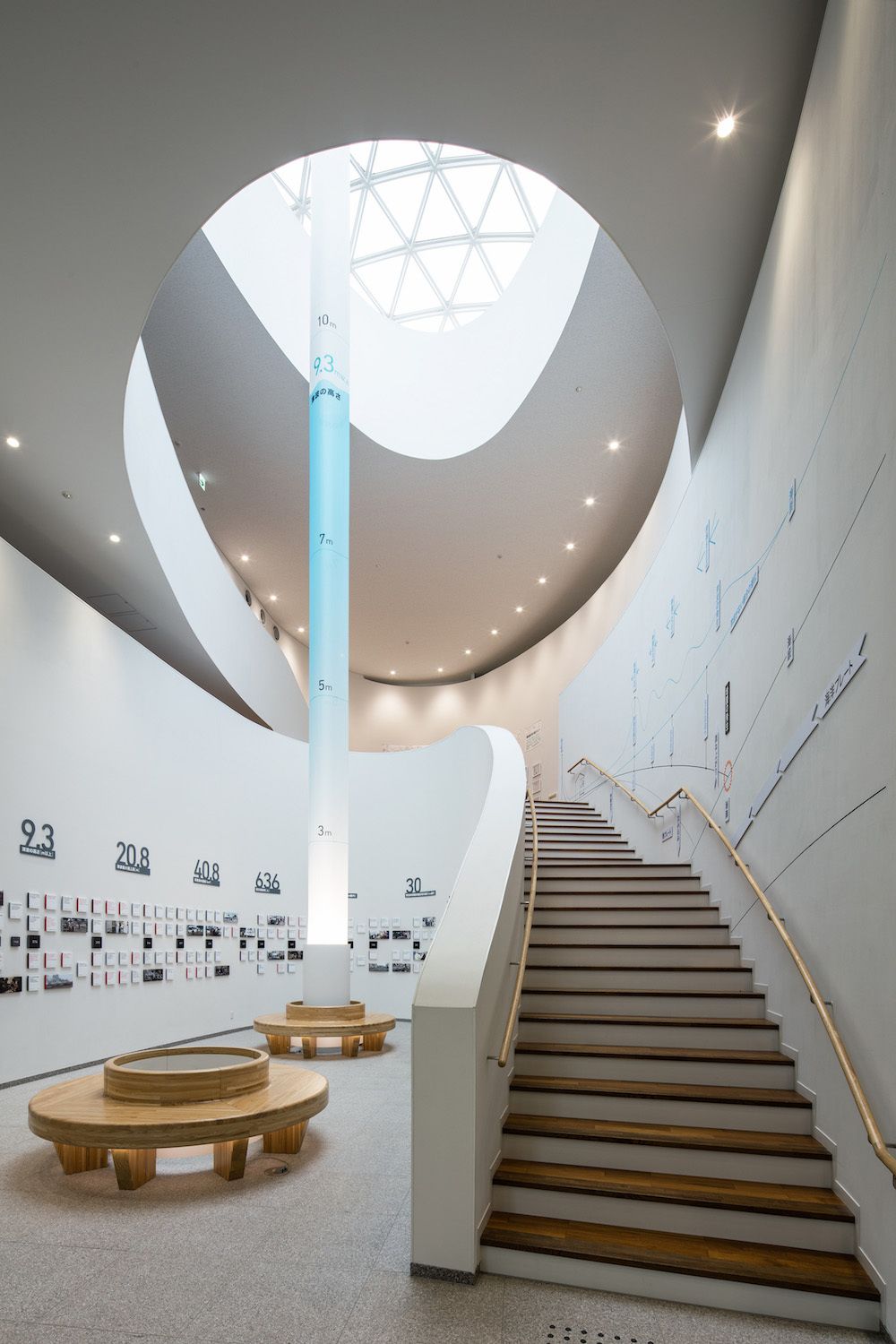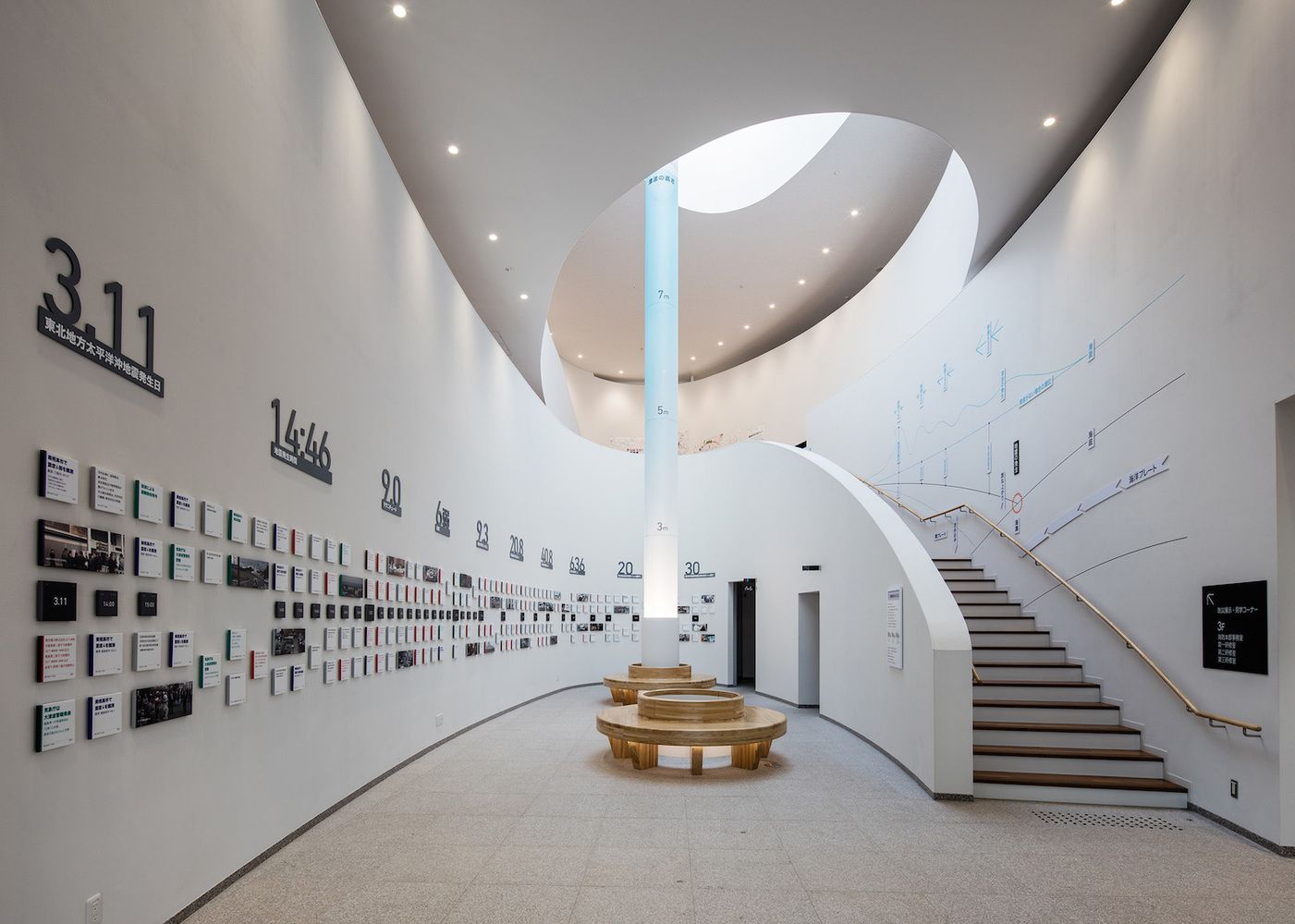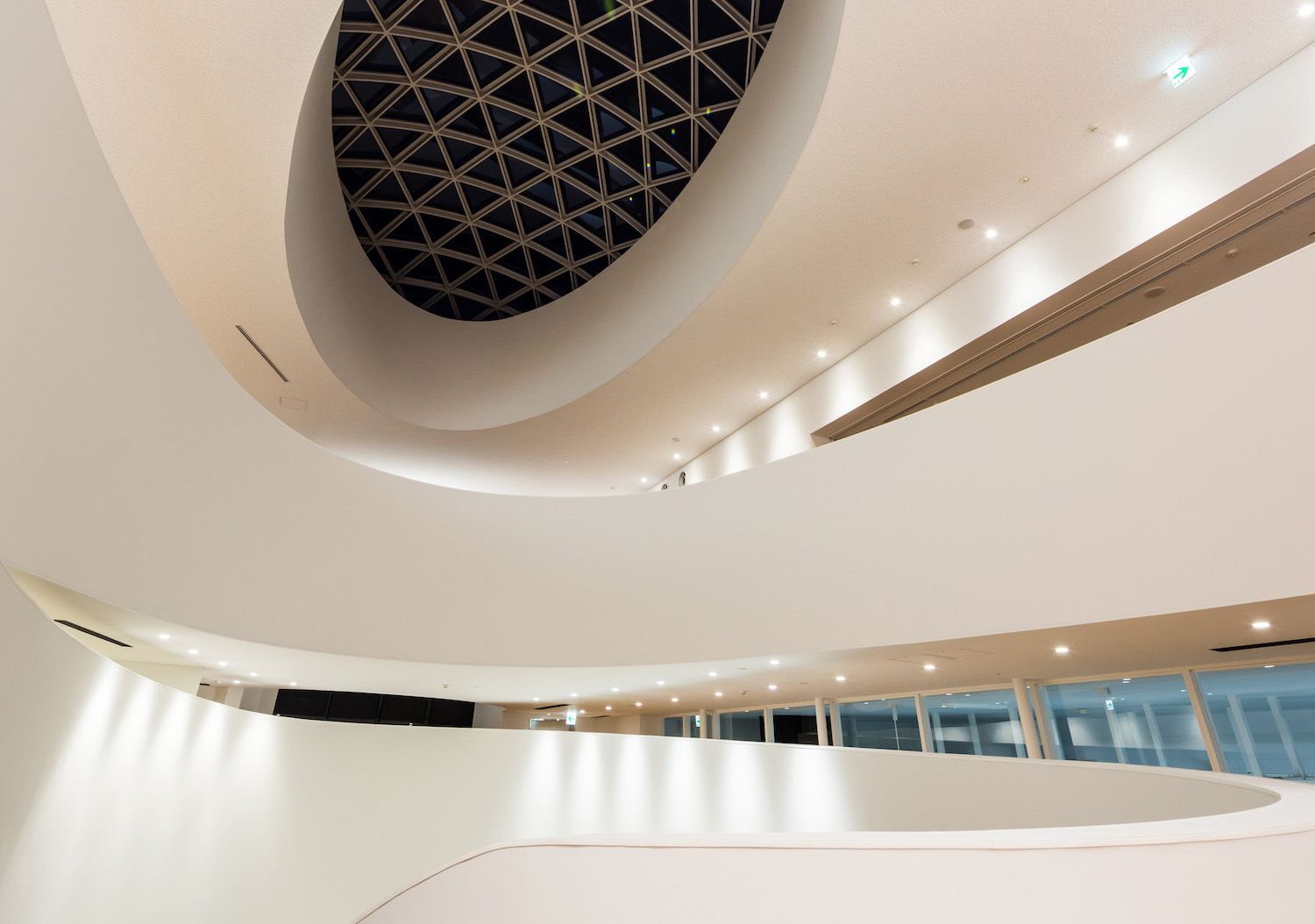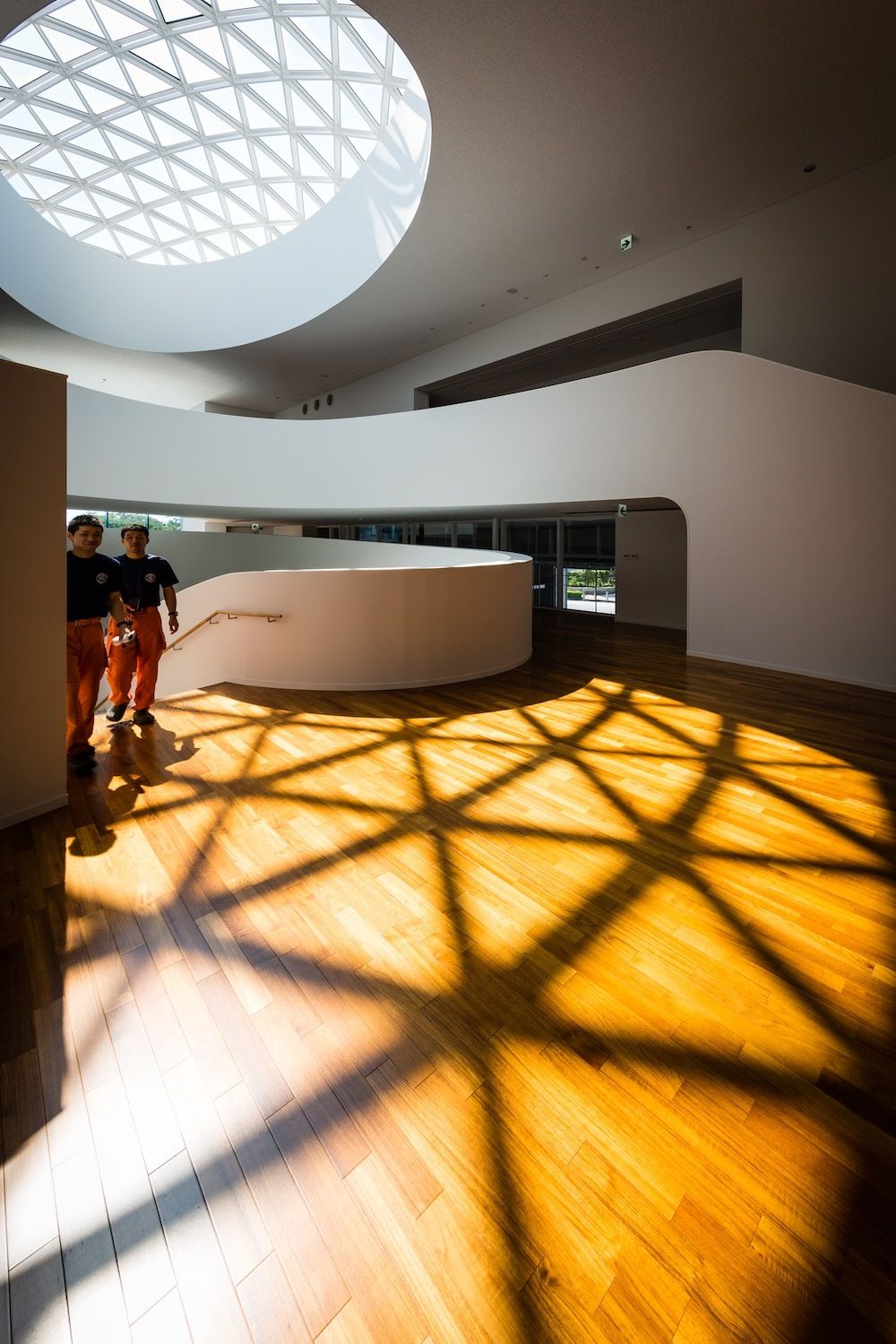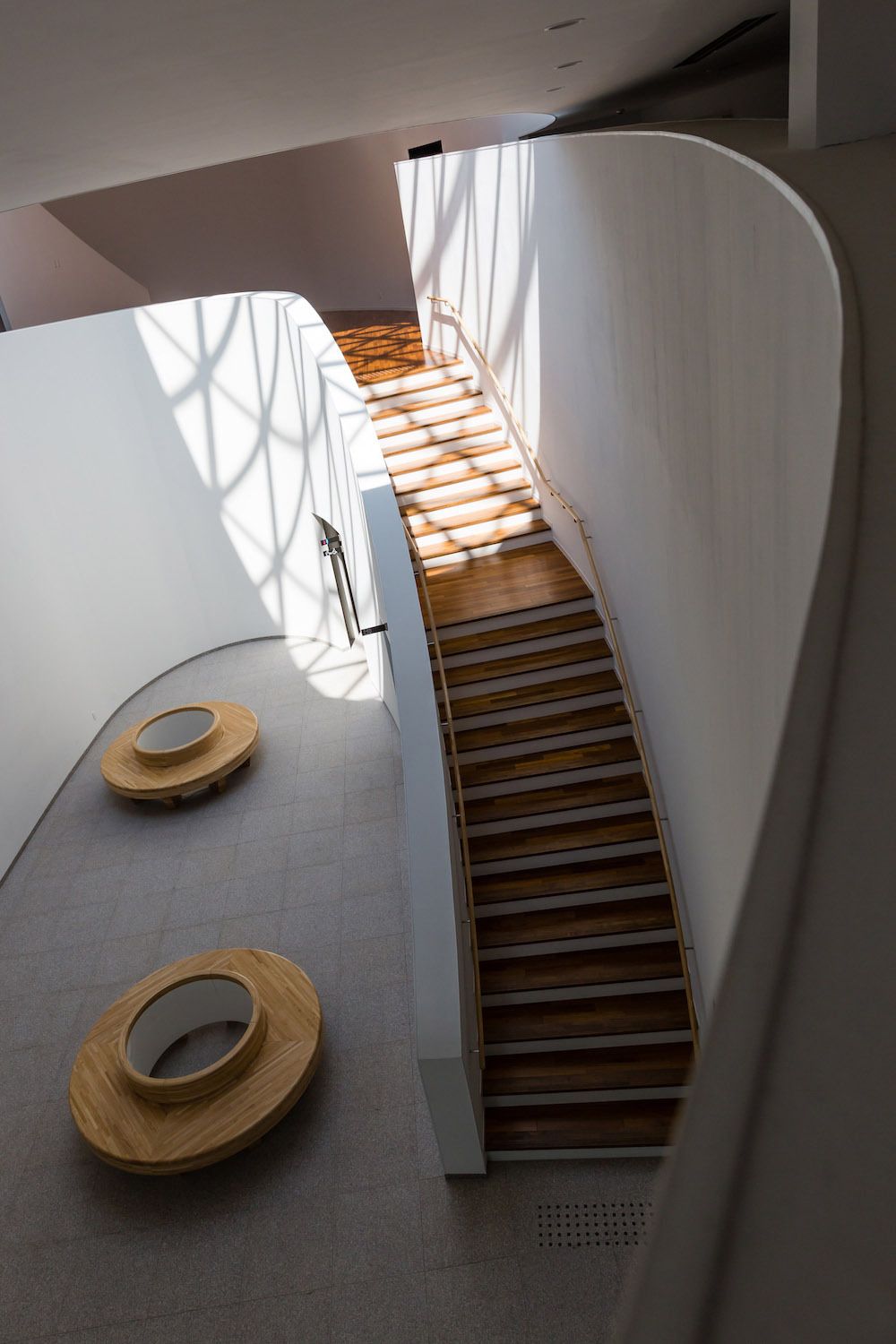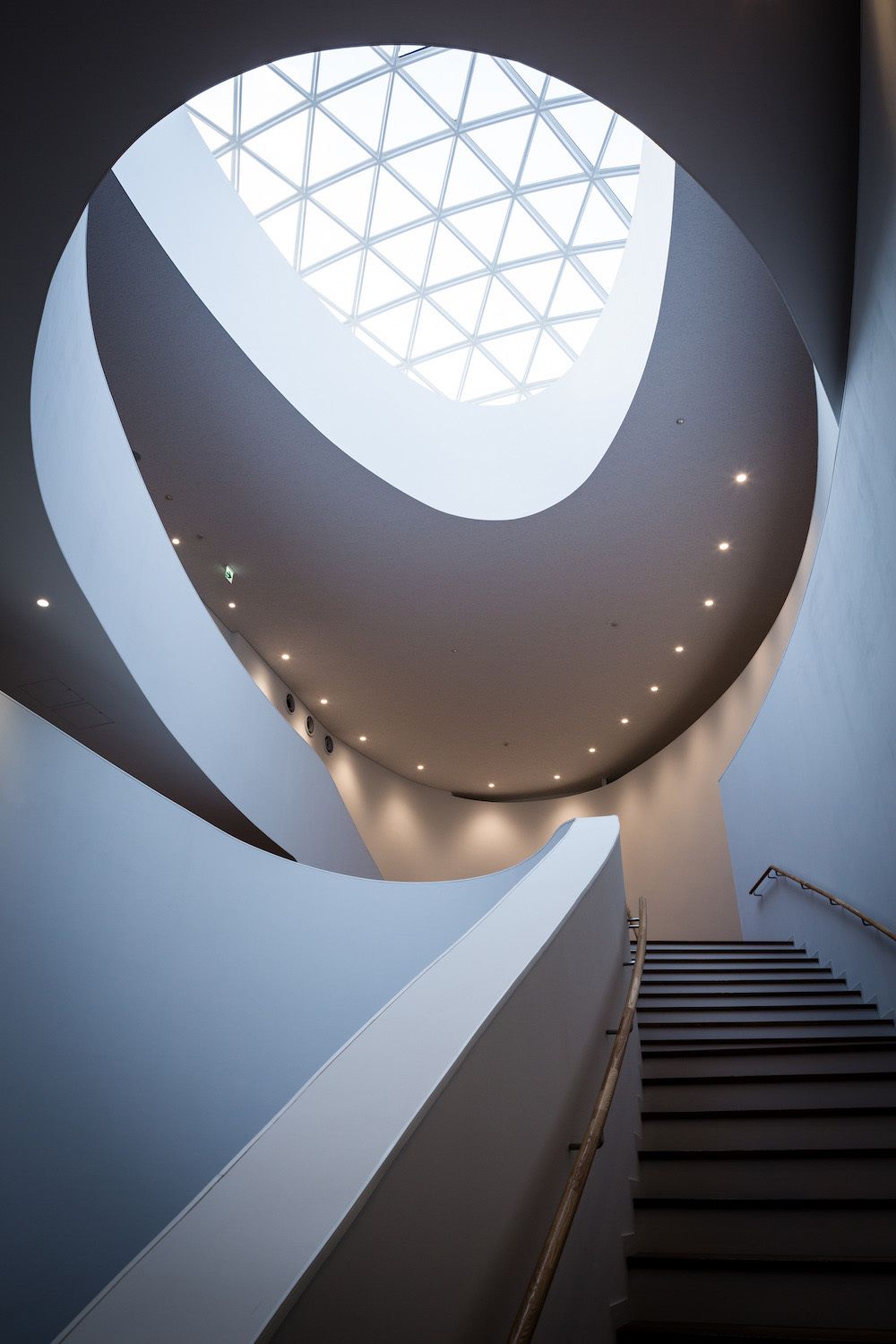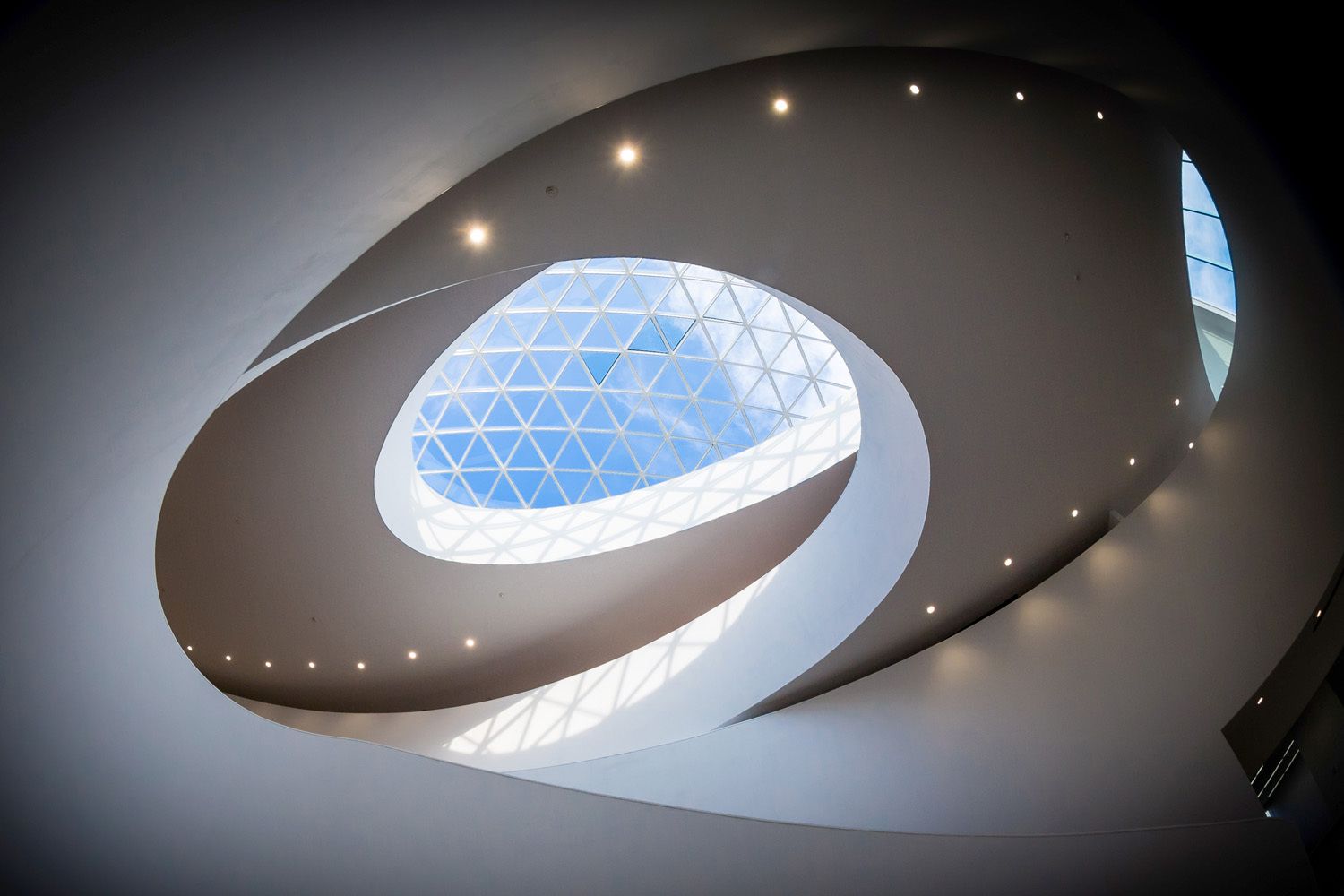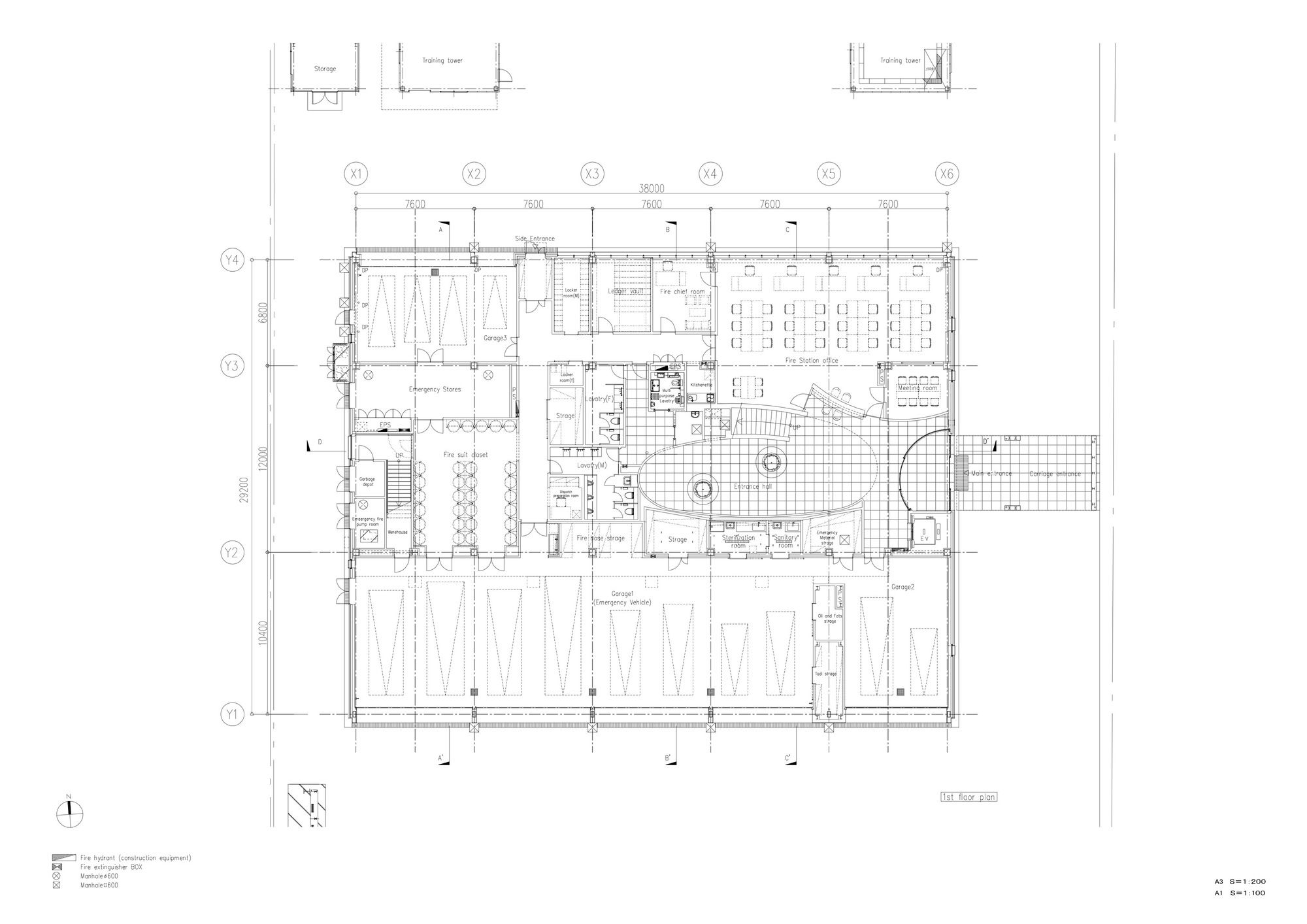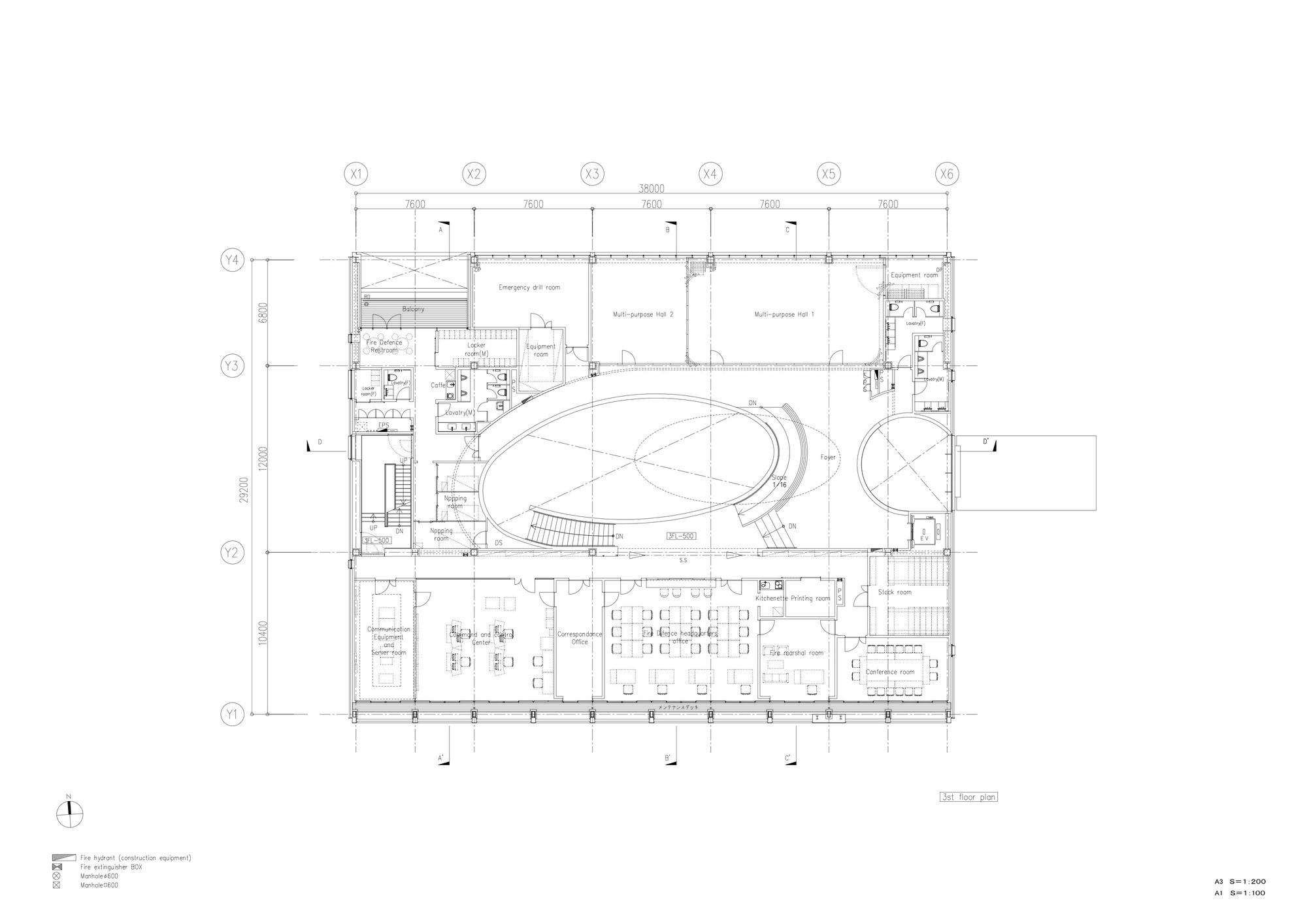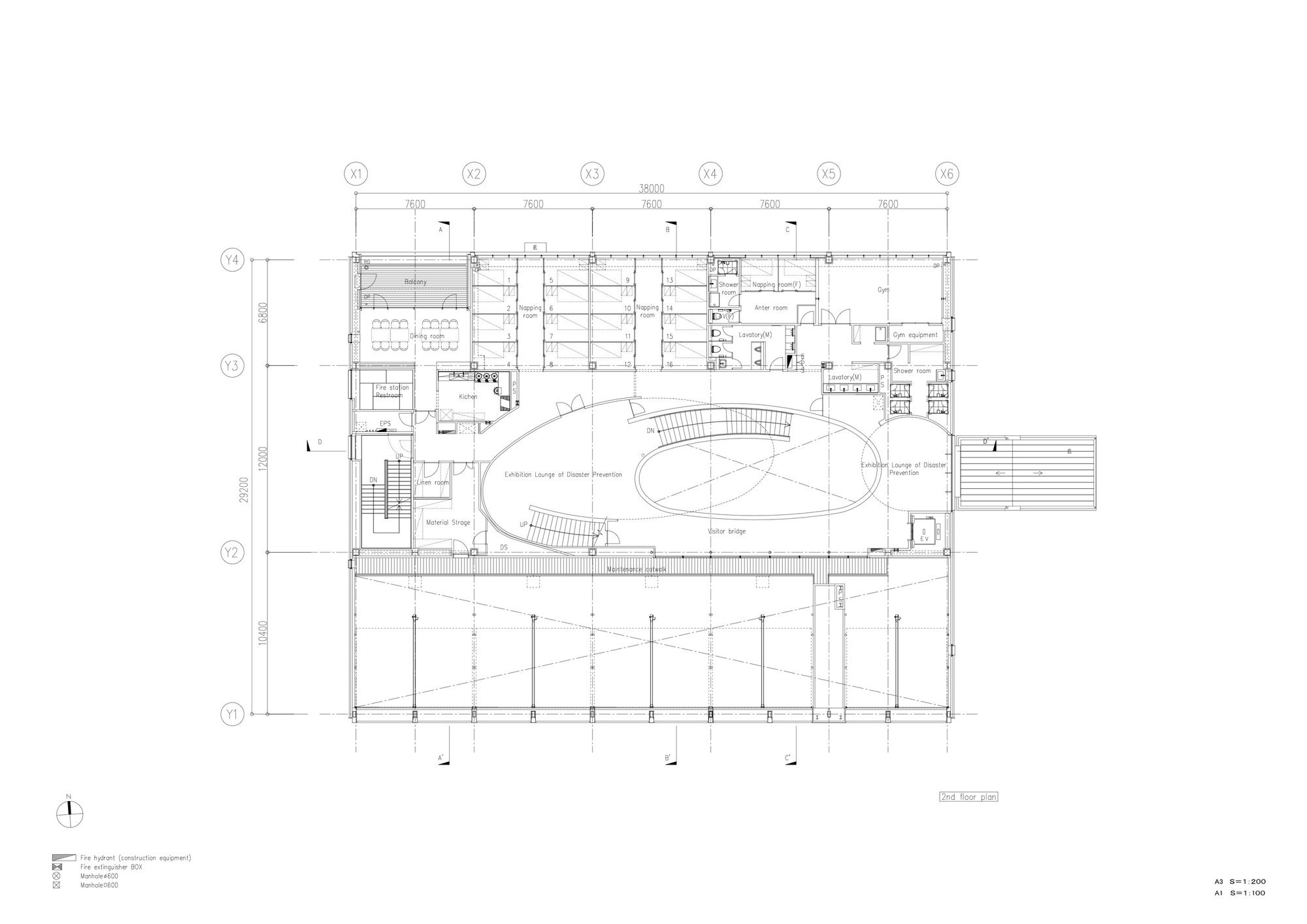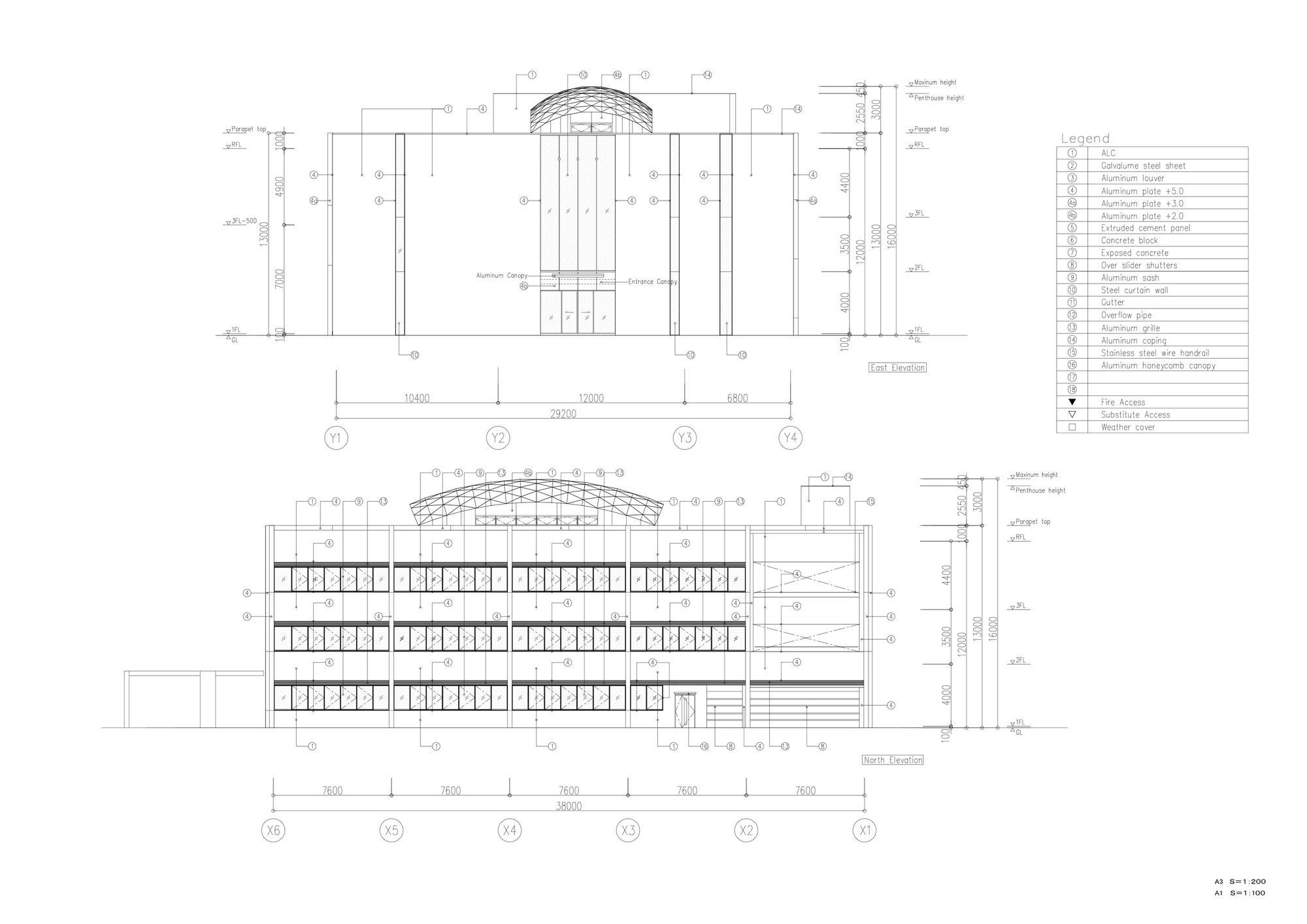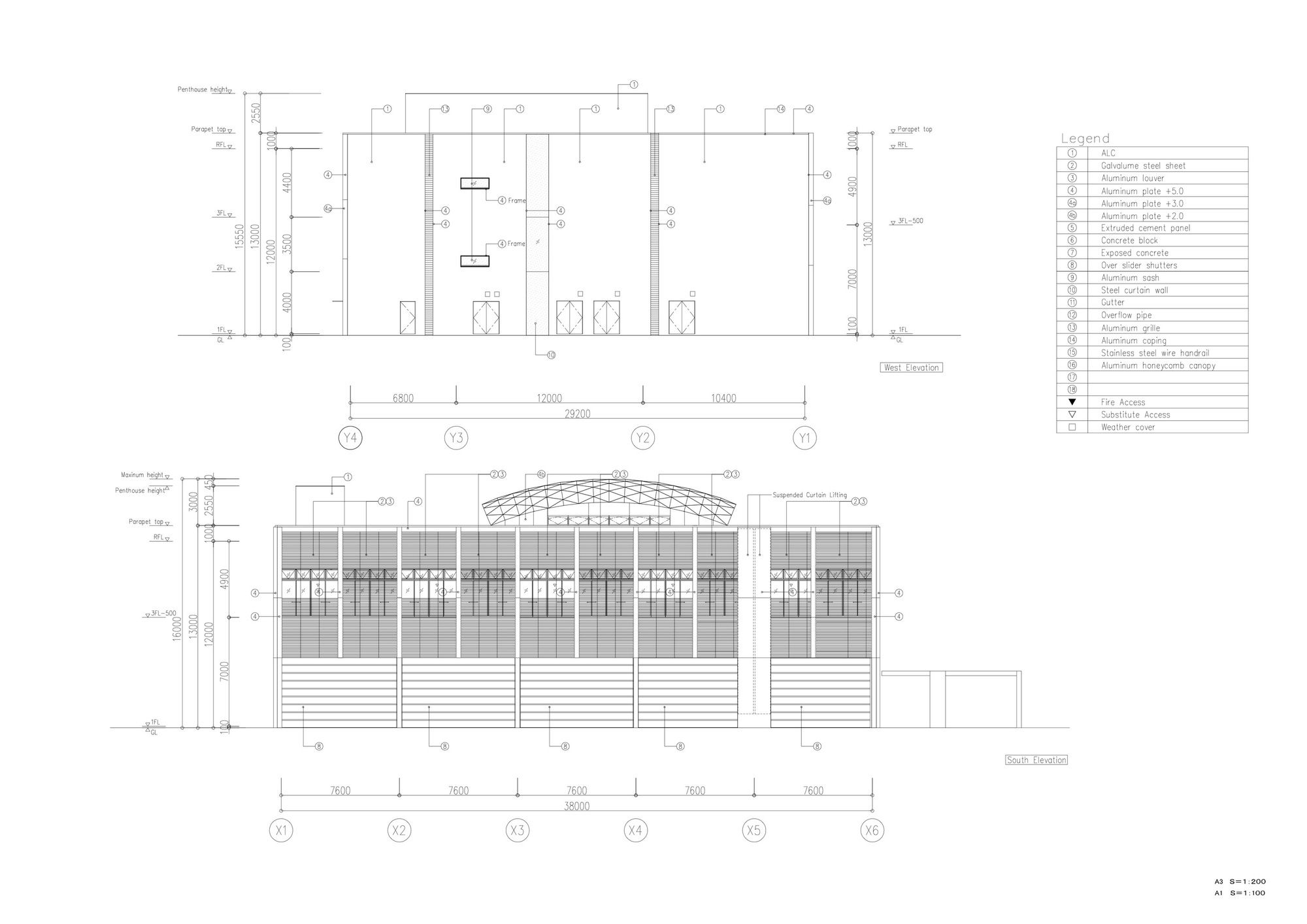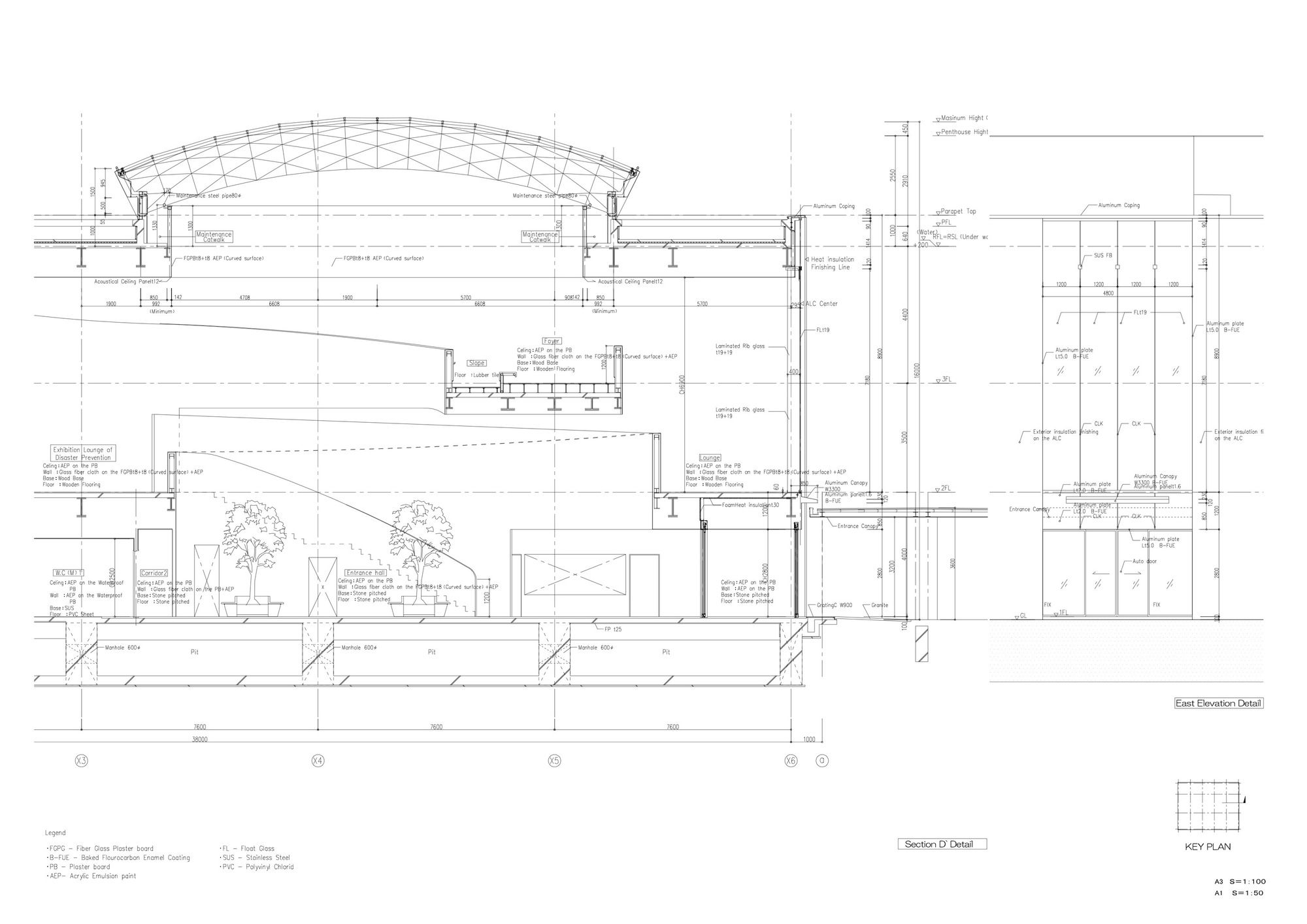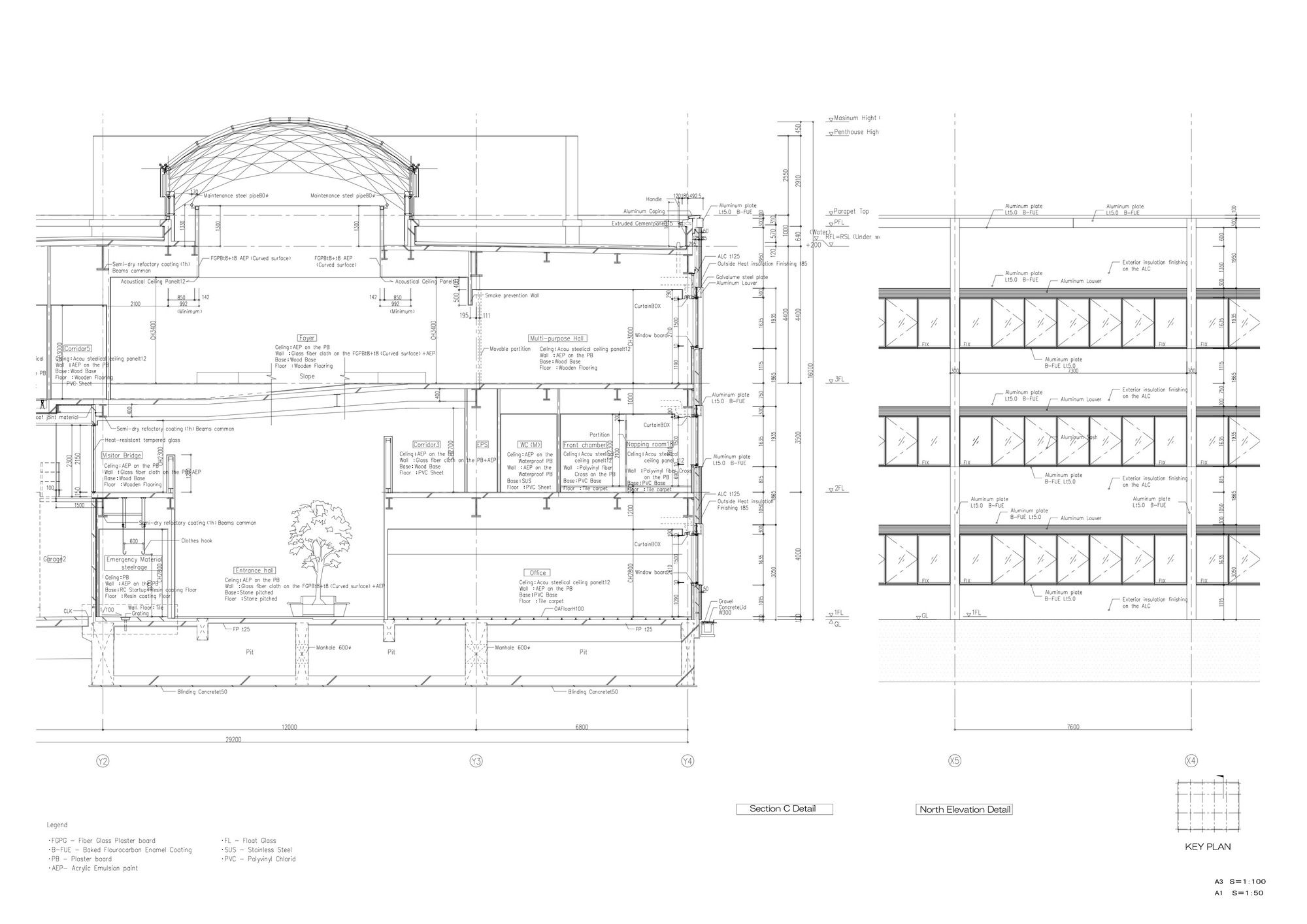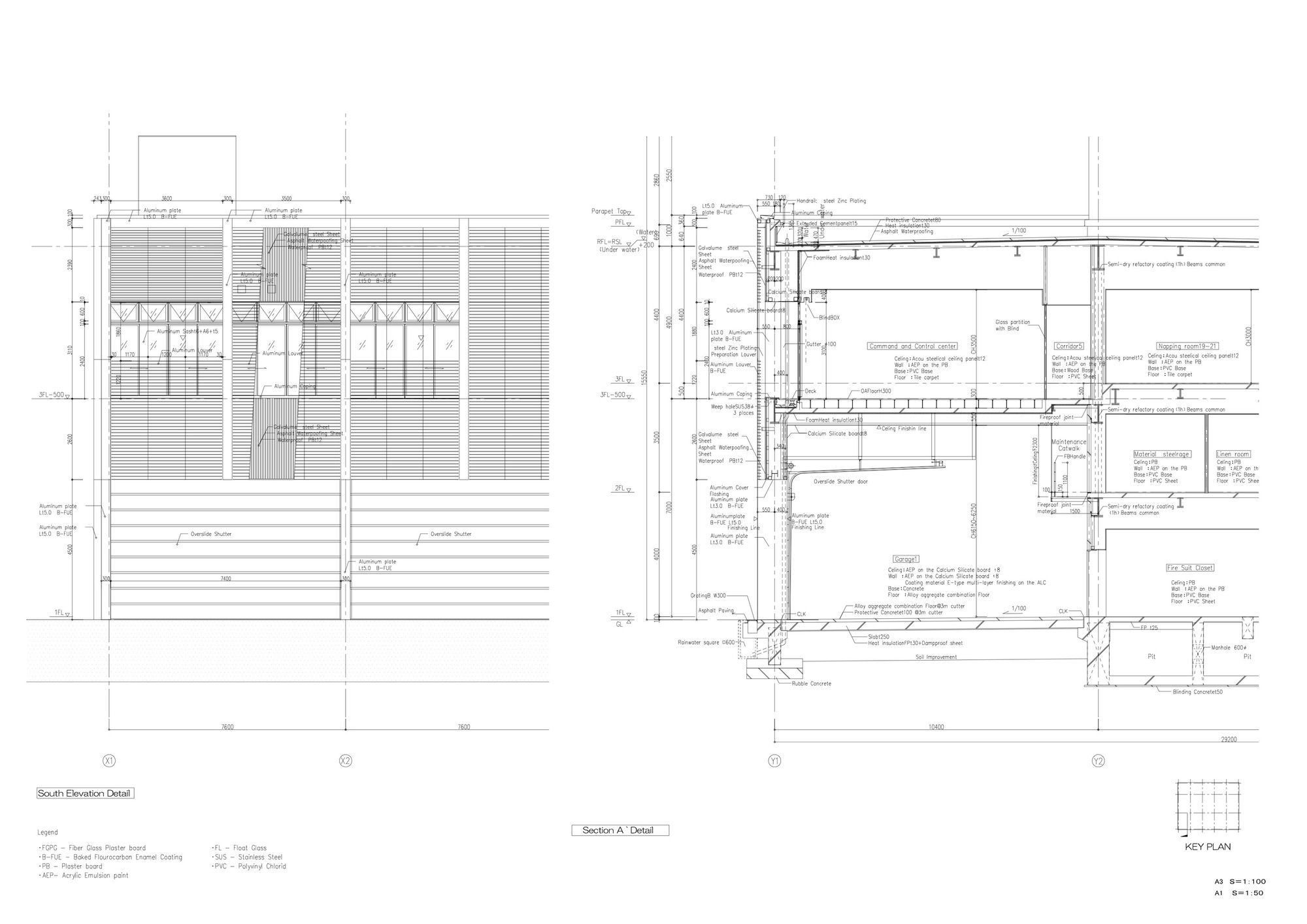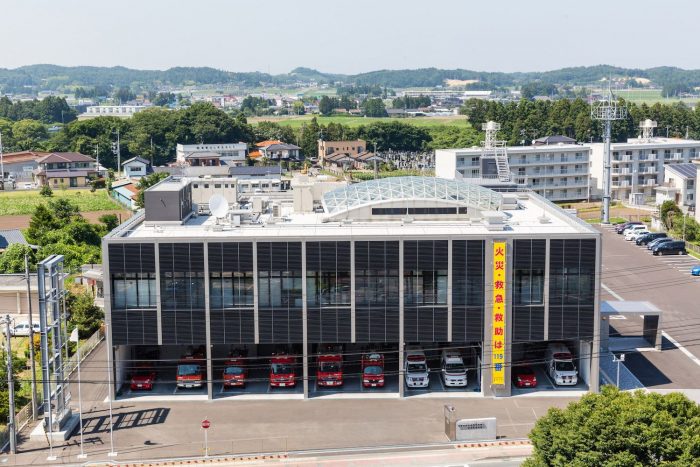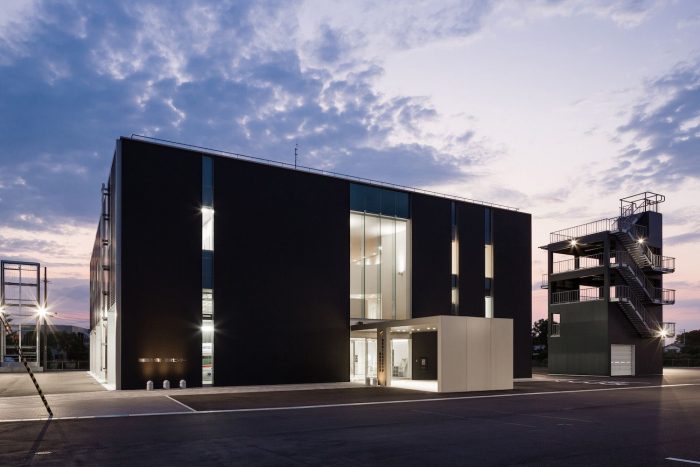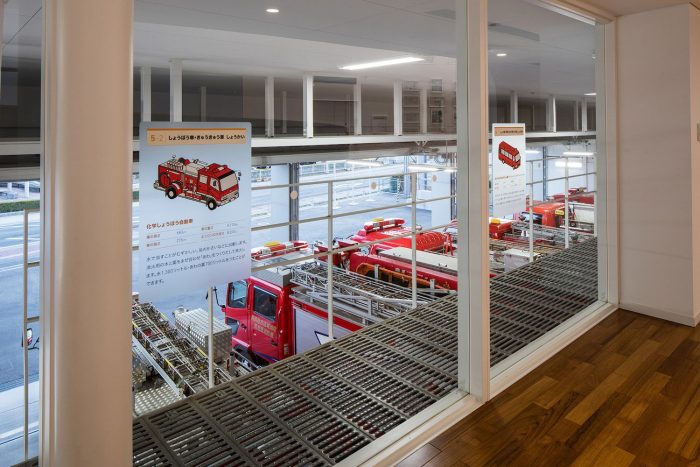Minamisoma City
Following the devastating combination of a massive earthquake and tsunami, Minamisoma city in Japan has revamped their Fire department and disaster control centre. After three years of planning, designing and conceptualising, the new structure finally stands modest but proud, with its muted and alluring facade.
The centre stands as a new hope for the residents of the city, a beacon, following the effects of the natural disasters. The main atrium connecting the fire department to the disaster control centre is orb-like, a common space for the two main functions, giving a serene ambient threshold for meditation and remembrance.
The steel structure which holds the translucent material covering the atrium adds to the fragile qualities of the space, making it even more peaceful and serene. The atrium provides natural light and ventilation throughout the three floors of the building. This being said, the atrium can be seen from all floors of the building, as well as glimpses from the structures dark skin.
An exhibition can be found in this space, which has a similar aesthetic to the inside of an acoustic guitar. The handrails in this tranquil passage area vary in height – purposefully executed by the architects to guide the eye to specific locations and items around the exhibition.
The exterior colour of the facade contrasts the interior atmosphere; the facade mourning the loss and acknowledging the tragedy faced by the civilians, the interior giving hope and solitude. The exterior form of the design is sombre, almost pensive if personified, while reassuring the people of the city that they are protected. Adding to this notion are the programmes of fire safety and disaster prevention, the functional spaces catering well for the execution of services provided.
Architects: Tetsuo Kobori Architects, Nagayama Architect Office
Location: Minamisoma, Fukushima Prefecture, Japan
Client: Minamisouma City.
Exhibition design: Tetsuo Kobori Architects, Nagayama Architect Office, NOMURA Co.,Ltd. Musegram, mume
design
Area: 2751.68 sqm
Project Year: 2015
Photographs: Takahiro Arai, Shin Photo Work
Structural Engineer: Arup
Construction: Sekiba Corporation
Site Area: 5,049.69 m2
by: Thelma Ndebele
